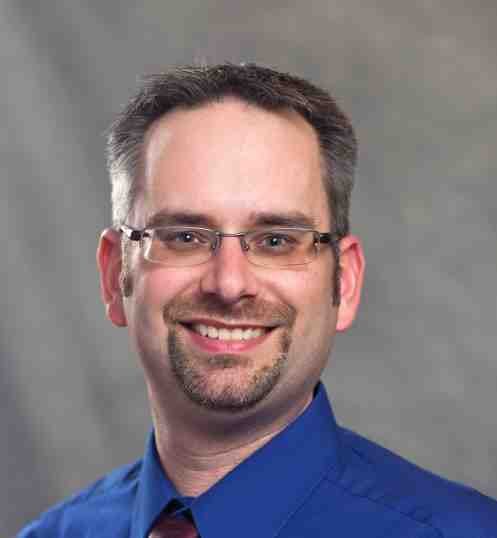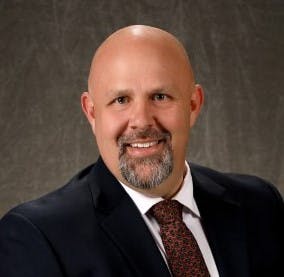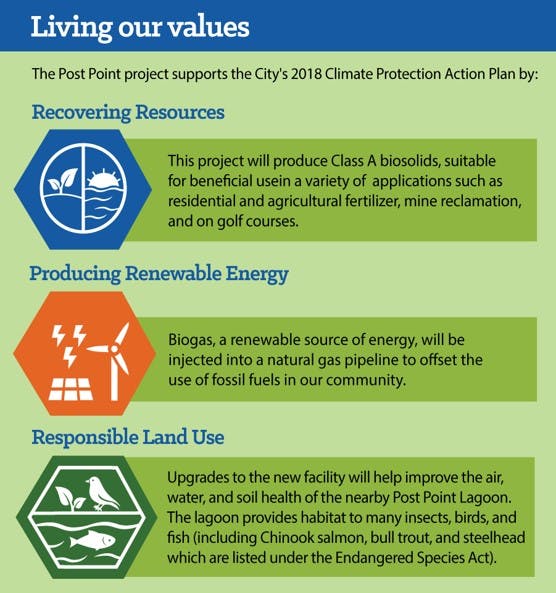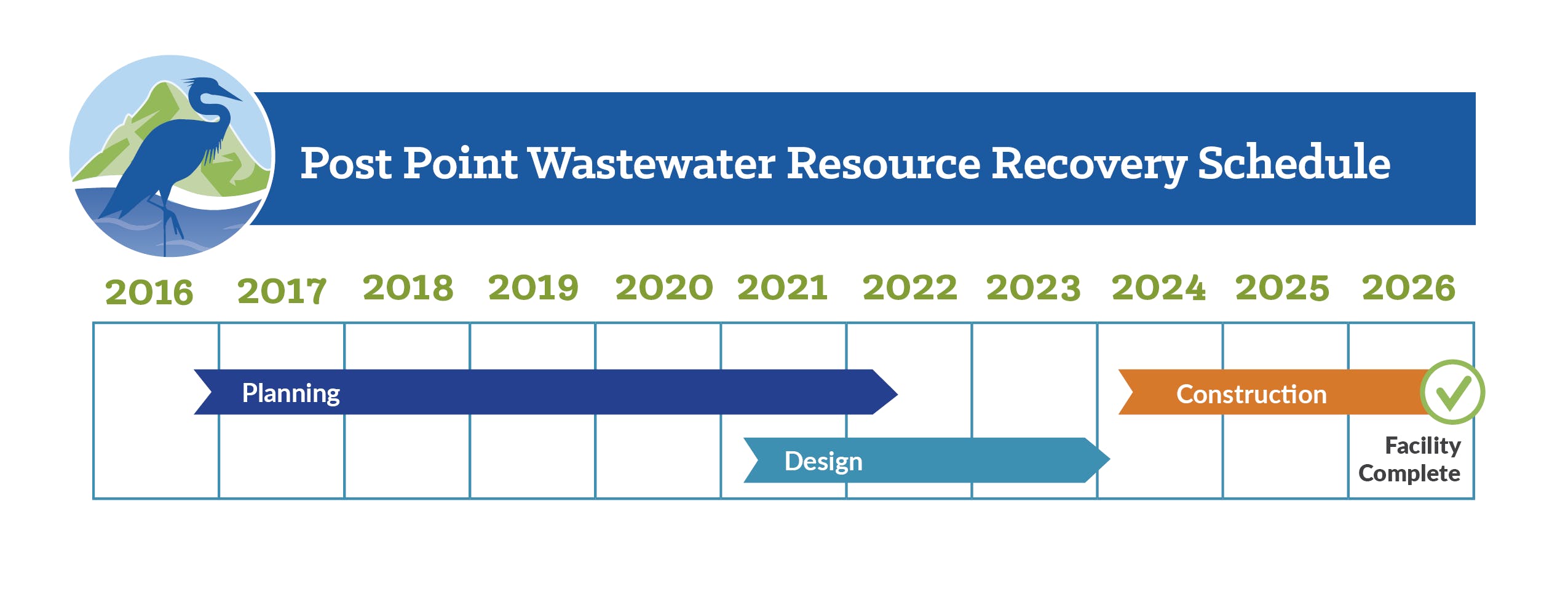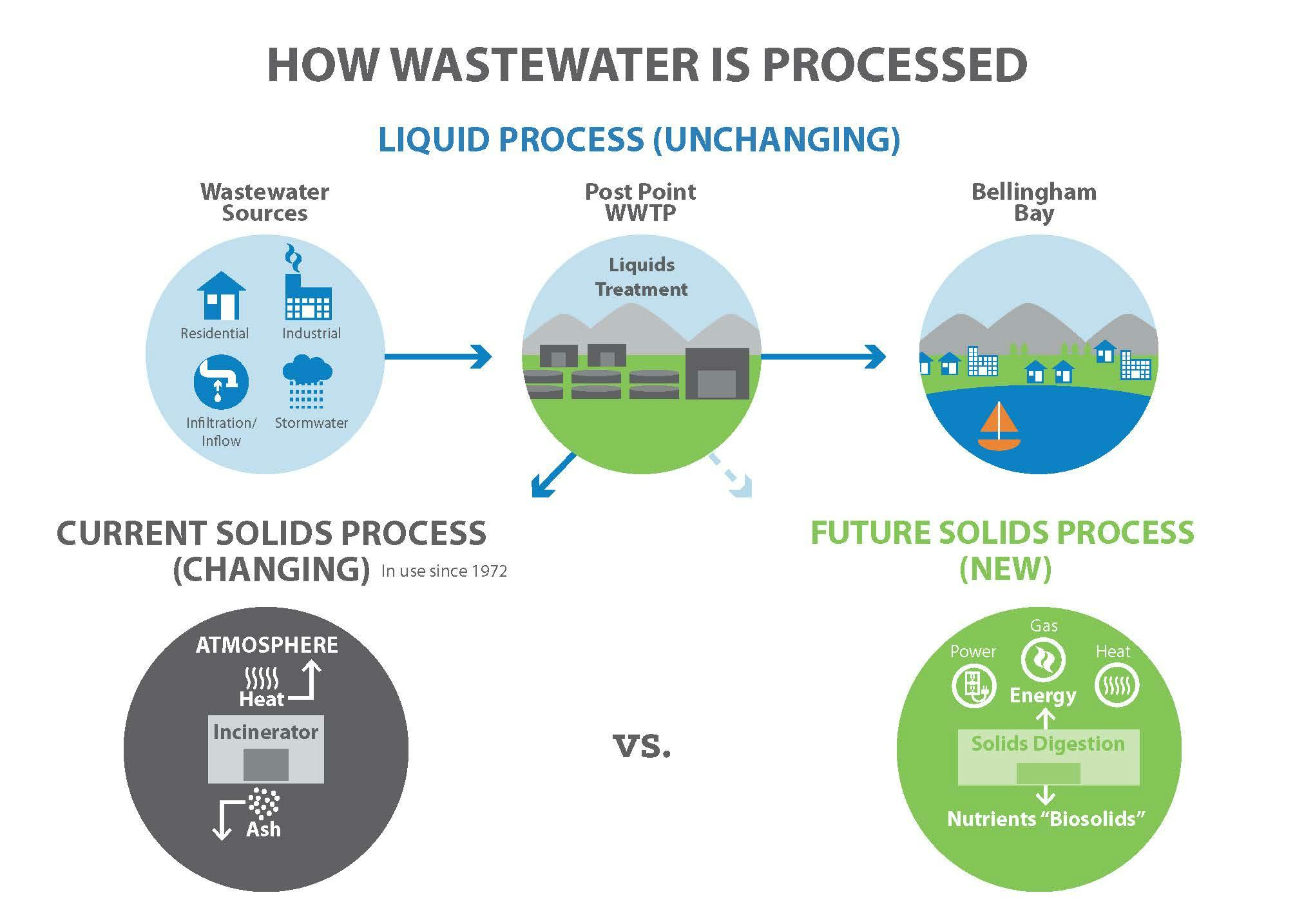Post Point Wastewater Resource Recovery Project
Consultation has concluded
The Post Point Resource Recovery project is a defining opportunity for Bellingham to support its 2018 Climate Action Plan and reduce sewer utility carbon dioxide (CO2) emissions by 60-80%.
We are designing future improvements at the Post Point Resource Recovery Plant (Post Point). These improvements are needed because equipment is aging, expensive to repair, and incinerates solid waste – rather than recovering reusable resources.
Earlier planning phases of the project collected feedback through community workshops. We are replacing the facility's incineration system with a digestion process that transforms wastewater solids into two reusable resources: biosolids and biogas.
What's happening now?
City Council Meeting: On July 26, 2021 the project team discussed the Post Point Resource Recovery project and emerging contaminants of concern. Check out the full video stream. As a follow-up to this conversation with City Council, the project team will conduct testing to try to better understand levels of per- and polyfluoroalkyl substances or PFAs in the city’s wastewater. Staff will also take a look at the cost and availability of testing for emerging contaminants of concern and will report their findings back to City Council.
On December 6, 2021 at 10 a.m., the project team will report the findings from the testing results for contaminants of concern to the Public Works and Natural Resources committee. More information can be found in the council packet or on the project webpage.
Engage Bellingham survey results: Thank you to everyone who took the time to provide feedback using the survey below. The results are now available in the Documents section on the bottom of the right side of the page.
Updated project FAQ: Have questions about the project or want to read more about PFAs? Check out our updated project FAQ!
We want your input!
- Take our survey at the bottom of the page.
- Sign up for email updates here: https://cob.org/services/utilities/waste-water-treatment/post-point-email-updates.
- Visit our project page for additional materials from project milestones.
- Request a community briefing by entering a comment below or email ResourceRecovery@cob.org.
Por favor, para información en Español, comunicarse con el Departamento de Obras Públicas al telefono (360) 778-7700. Gracias.



